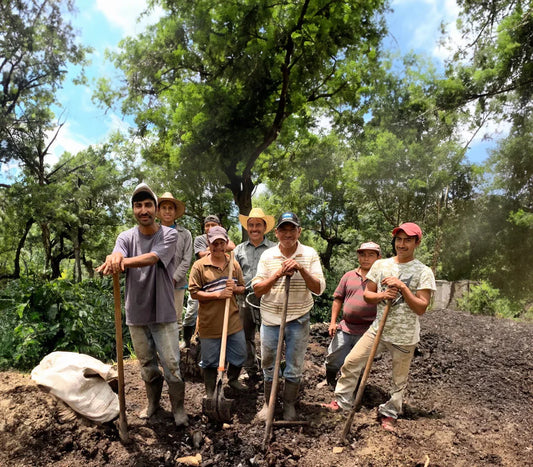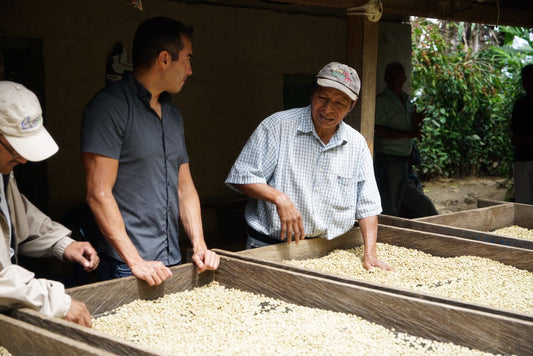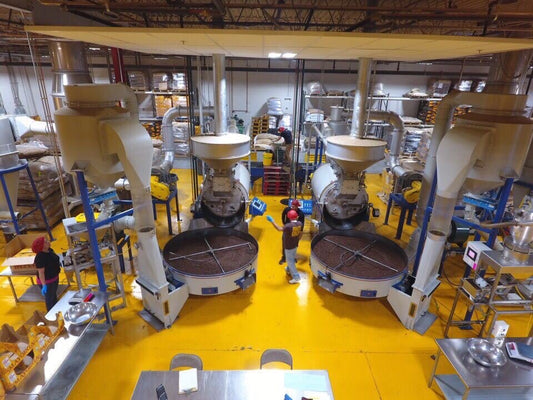
Sabor, Sonidos, y Letras: How Latin American Immigrants Have Transformed the US Cultural Sphere
Jump to:
Throughout its storied history, the United States has been a destination for successive waves of immigrants, each bringing their unique perspectives and enriching the fabric of its society.
Among these, Latin American immigrants have played a truly transformative role in shaping the United States into a diverse nation brimming with cultural vibrancy. The rich heritage of our Latino communities, spanning from delectable cuisine to captivating music, from expressive language to profound literature, has indelibly imprinted upon the tapestry of US culture.

A Latin American Culinary Revolution
Latin American flavors and dishes have had an unprecedented impact on the culinary landscape north of the border. Mexican cuisine in particular is so popular that you’d be hard pushed to find someone without a favorite taco truck! Words such as burrito, guacamole, and chilaquiles have been adopted by the nation’s gastronomic lexicon and it’s hard to remember a time when Cholula wasn’t a store cupboard staple.
Beyond Mexican cuisine, Peruvian food has been on a steady rise to popularity amongst foodies. Los peruanos have introduced the US to dishes like ceviche – raw seafood marinated in citrus juices – and lomo salteado, a type of stir-fry combining marinated beef, onions, and tomatoes.
Los dominicanos have shared palates of tostones, fried plantain slices, and sancocho, a hearty stew featuring a medley of meats, vegetables, and herbs. Los argentinos have won the nation’s heart with their world-renowned asado. Classic empanadas, stuffed pastries filled with popular ingredients like meat, cheese, or vegetables, have also gained recent popularity as a hearty snack or meal option.
Celebrated Peruvian chef Gastón Acurio describes the impact of Latin American cooking on food culture in the US: "My fellow Latin American immigrants have revolutionized [North] American food culture, infusing it with the bold spices, authentic recipes, and vibrant flavors that are at the heart of our heritage.”
Melting Pot Melodies: Latin Music in the US
Food is not the only element of Latino culture to be welcomed into the US societal sphere. Latin American vibes have swayed their way onto the US music scene. And it looks like they’re here to stay! Latin music was the fastest-growing genre in the US in 2022, with a 23% increase in consumption (Recording Industry Association of America). Such a surge in popularity not only reflects the growing influence of Latin American music in the US, but highlights the growing exposure of Latin music to the US, allowing opportunities for the country to embrace diverse musical genres. From salsa and merengue to reggaetón and bachata, Latin American music has transcended cultural boundaries and captured the likings of many. The global success of artists, including but not limited to Gloria Estefan, Carlos Santana, and Shakira – in addition to recently popular artists like Karol G and Bad Bunny – is a true testament to the enduring and surging popularity of Latin American music.
Grammy-winning Colombian artist Juanes expresses the sentiment perfectly. "Through music, we can create bridges, share our stories, and celebrate our shared humanity." Music has no barrier, and its power to bring communities together and bridge cultures is extraordinary.

The Latin American Influence on Language and Literature in the US
We cannot forget to mention the influence of Latin American dialects on language in the US. Spanish is becoming increasingly prevalent in the US, with many English speakers incorporating commonly used Spanish phrases into their lexicon. In fact, Spanish is becoming the second most spoken language in the United States. Now, with more resources and educational opportunities available for US citizens to learn Spanish, it seems the language is well on its way to becoming the second language of the country.Beyond linguistics, Latin American writers over time have made significant contributions to the nation’s literature, beginning with the commercial and critical success of Latin American writers in the USA during the 1960s. Translations of writers such as Julio Cortázar, Jorge Luis Borges and Gabriel García Márquez paved the way for contemporary authors we love today - Isabel Allende, Junot Díaz, Juan Cárdenas, but to name a few!
Between them, these authors have all garnered international critical acclaim. Gabriel García Márquez's "One Hundred Years of Solitude" ("Cien años de soledad") was widely celebrated by US readers and critics alike, earning Márquez the prestigious Nobel Prize in Literature in 1982. Published in 1967, it tells the multi-generational saga of the Buendía family in the fictional town of Macondo, a Colombian town. The novel's themes of family, love, time, and the cyclical nature of history deeply resonated with readers across cultural and linguistic boundaries. Its relentless exploration of the human condition and intricate portrayal of the Latin American experience bridged cultural divides, creating a safe space to more deeply understand and appreciate perspectives from different cultures.
These are just a few ways in which Latin American communities have shaped the cultural landscape and societal fabric of the United States.
The enduring influence of Latin American cultures serves as a powerful testament to the importance of embracing and valuing people from all cultural backgrounds. As the US continues to evolve with culture, the vibrant spirit of Latin America remains intertwined with the very essence of the nation's identity, perpetuating a legacy of profound cultural exchange and enrichment.


